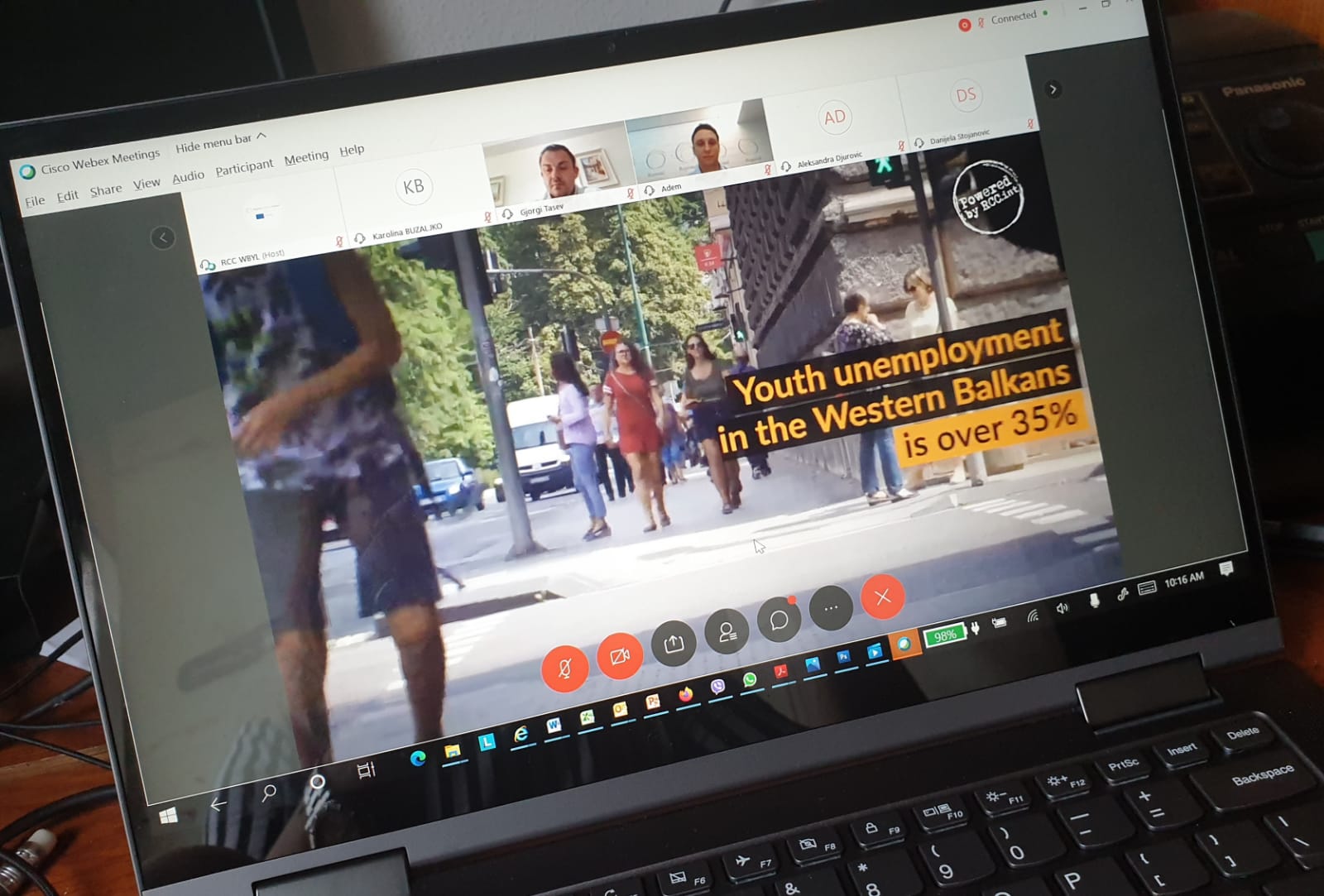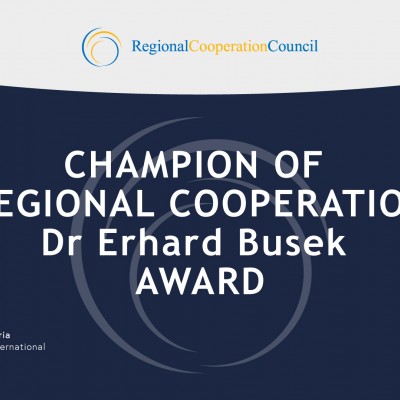Youth Unemployment in the Western Balkans: Youth is Crucial in Designing of Employment Policies
03 July 2020

RCC’s Western Balkans Youth Lab and Employment and Social Affairs Platform Projects organized webinar tackling youth unemployment in the region on 3 July 2020 (Photo: RCC/Ratka Babic)
RCC’s Western Balkans Youth Lab and Employment and Social Affairs Platform Projects organized webinar tackling policymaking and youth unemployment in the region
Sarajevo – “Numerous stories of unemployed young people across the region who want the leave in pursuit of a job and better life are loud and yet also seem silent. That is why the Western Balkan Youth Lab (WBYT) project is seeking to make young people more involved in decision making policies and create partnership between the administrations and youth in designing and implementation of these policies, be it on unemployment, education, entrepreneurship, environment, digital, or other issues”, said Adem Gashi, Team Leader of WBYL project at the webinar ‘Endeavoring for youth-grown solutions’, jointly organized by the Regional Cooperation Council’s (RCC) WBYL and Employment and Social Affairs Platform (ESAP2) projects today.
According to the Balkan Barometer 2020, staggering 71 % of Western Balkans (WB) youth think about going to work abroad and another 10% are still considering that option. When talking about youth and their voice being heard, 74% of youth age 18-24 agree that regional cooperation can contribute to the political, economic, or security situation and 61% tend to agree that what brings Western Balkans citizens together is more important than what separates them. The unemployment continues to remain high and 51 % of young people worry about employment. Nevertheless, good news is that 85% of WB youth age 18-24 would for sure be ready to acquire additional qualifications to advance at work. The issue of unemployment is alarming in many ways. 59% of young men and women of age 18-24 believe that unemployment/financial insecurity contribute to radicalization and violent extremism.
Nand Shani, Team Leader of the RCC’s ESAP 2 project presented the work and results of the project in the past, focusing on achievements of the WB economies in the domain of measures incentivising youth employment.
“One webinar does not remotely do justice to such a demanding topic as youth unemployment, which in the region ranges even up to 35%. It requires synchronised actions of all key actors and this is an important step in that direction. We at the RCC start from the regional level of coordination and cooperation that is extremely important as we share many common denominators. Form there we move toward higher standards, looking at the EU practices, such as Youth Guarantee, which have always been an inspiration to us in the region and models of functional integration”, said Shani.
Pirkko Pyörälä, Policy Officer at the European Commission (EC) shared EU experiences with youth unemployment referring to the Youth Guarantee programme implemented the Member states, and recent EC initiative enhancing youth employment with a support package, which will have special focus on green and digital transitions, adding that youth unemployment continues to pose a great challenge in the EU - at 14% it’s still double the overall unemployment rate of 6.2%. Karolina Buzaljko, Project Manager at the EC’s Directorate-General on European Neighbourhood and Enlargement Negotiations (DG NEAR) underlined that young people should benefit from all policies and actions and take part in shaping them in a better way to address their concerns and needs, adding that Western Balkans Youth Lab was a god project that can make a difference in this field.
After the active and vivid discussions on different dimensions of the youth unemployment such as inactivity, employment of vulnerable youth groups, brain drain, etc. the overwhelming conclusion of the meeting was that cooperation of all stakeholders needs to continue and become stronger in line with realities of the modern age to ensure that needs of young people are addressed; to eliminate mismatch between labour market needs and education systems; and involve young people in creation of employment policies and measures.
The webinar gathered a diverse group of over 60 participants from the six Western Balkan economies and the EU, including respective line ministries in the field of youth and employment, employment agencies, youth councils and umbrella youth organizations, Roma community organizations, as well as organizations working with people with disabilities and others involved in the region, youth issues, and labour market.
***
Learn more about
• Employment and Social Affairs Platform (ESAP2)
• Western Balkans Youth Lab Project (WBYL)
ESAP 2 and WBYL are projects implemented by the Regional Cooperation Council (RCC) and funded by the EU.





